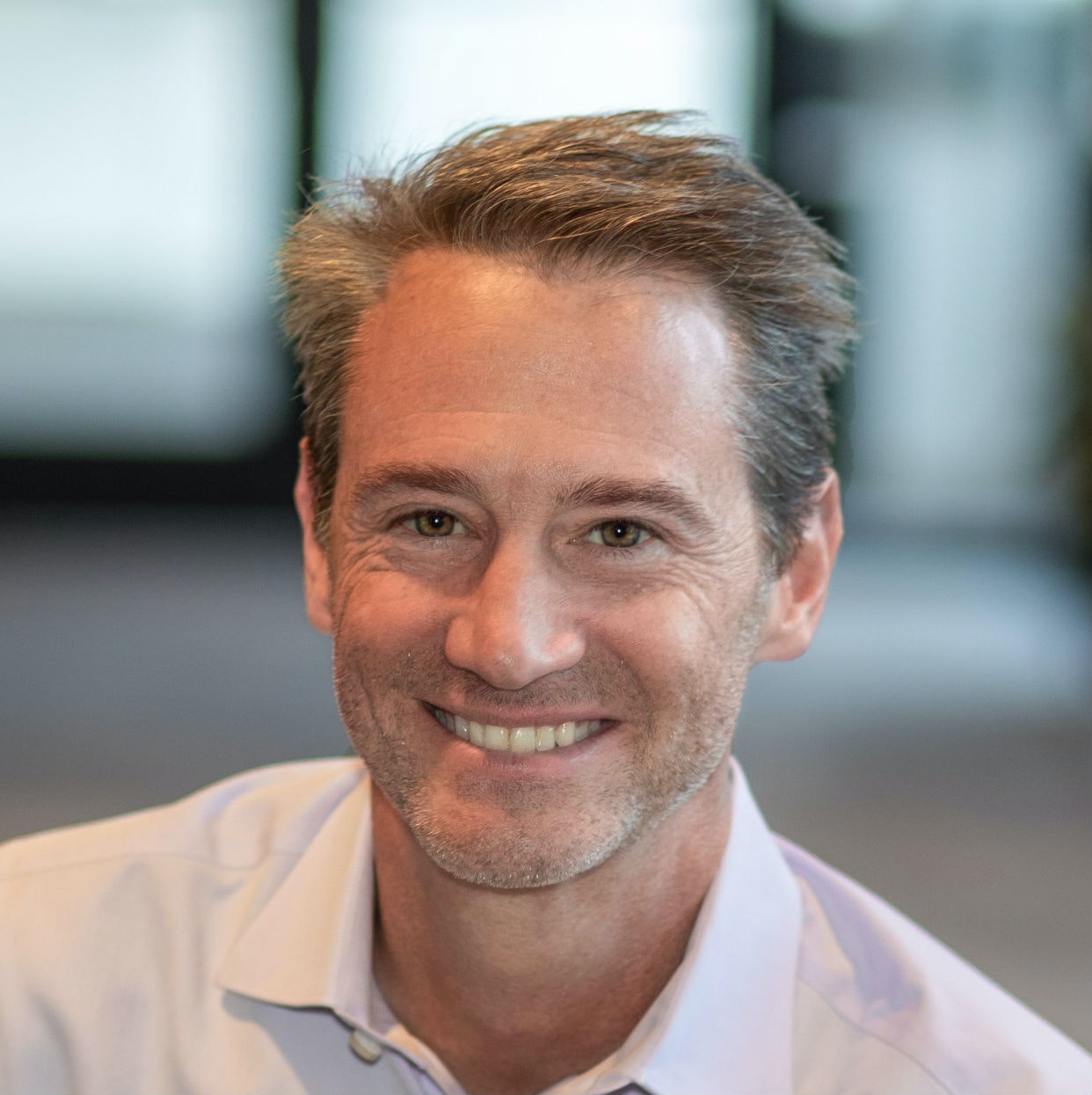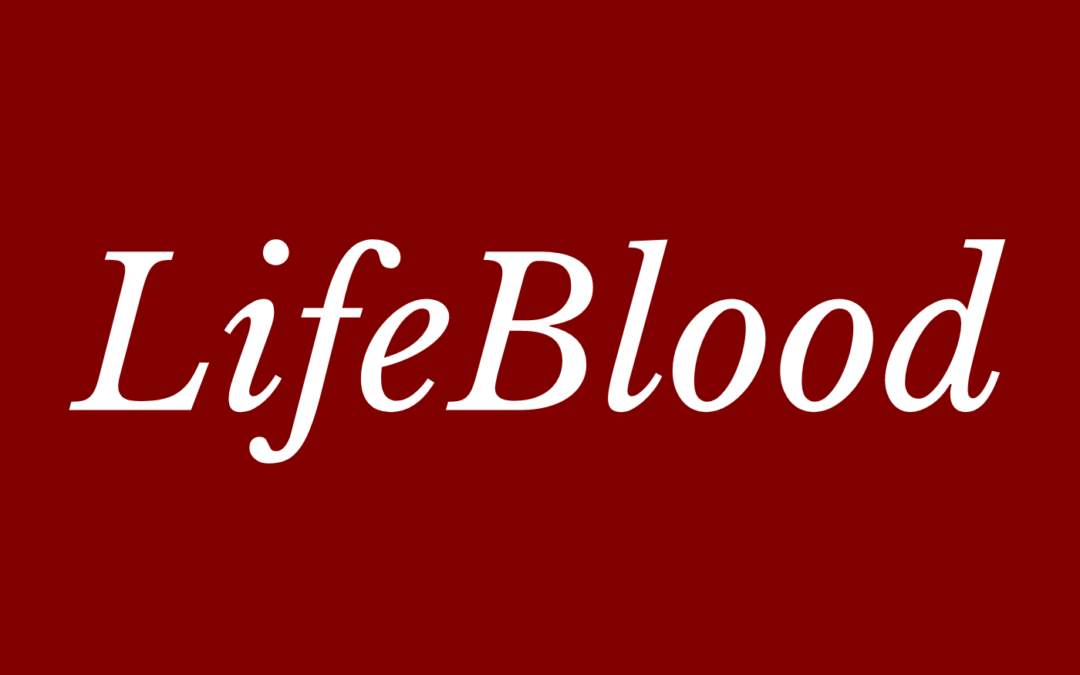Spend Management with Eric Friedrichsen
How much time are your employees wasting on mundane and non-revenue producing tasks? Eric Friedrichsen talks about how to free them from those tasks so they can focus more on the parts of their work they enjoy, and the technology that enables it!
Listen to us On
About the Episode
LifeBlood MAXIMIZE: We talked about spend management in organizations, how automation can help to humanize work, the value and importance of a purpose and values driven culture, how to make it happen at big and small orgs alike, and how to support you employees with Eric Friedrichsen, CEO of Emburse, a spend management company, helping orgs avoid employee burnout and retain talent.
Listen to learn why becoming a life-long learner will serve you greatly, and how to inspire that characteristic in those you care about and work with!
For the Difference Making Tip, scan ahead to 17:13.
You can learn more about Eric at Emburse.com, Facebook, Twitter, Instagram, YouTube and LinkedIn.
Thanks, as always for listening! If you got some value and enjoyed the show, please leave us a review wherever you listen and subscribe as well.
You can learn more about us at MoneyAlignmentAcademy.com, Twitter, LinkedIn, Instagram, Pinterest, YouTube and Facebook or you’d like to be a guest on the show, contact George at Contact@GeorgeGrombacher.com.

George Grombacher
Lifeblood Host

Eric Friedrichsen
Guest
Episode Transcript
Come on.
Eric Friedrichsen is the CEO of Emburse they are spend management company helping organizations avoid employee burnout and retain talent. And now finally, a guest on life blood maximize. Welcome, Eric. Thanks, George. Looking forward to it. Yeah, super excited to have you on. Eric, tell us a little about your personal life some more about your work and why you do what you do?
Eric Friedrichsen 0:37
You bet you bet. So I live in the Denver, Colorado area with my wife, Jessica, and our three very rambunctious kids. So we’re pretty busy family. We’re into all kinds of kids sports and soccer, football, swimming, and all kinds of outdoor things skiing and biking. And we spent quite a bit of time in the mountains. Although when we go, we have to find somebody to take care of our dog and our are eight pandemic adopted chickens. But a good time, we have a good time for sure, for sure. And an inverse. We are, as you mentioned, we’re in spend management. So we’re the number one choice and spend optimization software, we’ve got over 16,000 customers across the globe. And we help them with things anywhere from business expenses to corporate credit cards, invoices and payments. We work with all kinds of different customers have different sizes, anywhere from very large ones like Exxon Mobil, and Bosch, to some of the top law firms in the US to, you know, high tech companies all over the world, and even very small businesses with with 25 employees.
Unknown Speaker 1:42
Excellent. So, so what was what what is the problem that y’all are solving?
Unknown Speaker 1:51
Yeah, so our overall, our mission at inverse is to humanize work. And to explain what we mean by that, it’s all about trying to remove mundane tasks from our customers, employees, so that they can give time back to things that really matter much, much more like the mission of the company and their communities and their families, to really get to focus on what what really matters. And, you know, I think we’ve all seen through the pandemic, that there already was quite a bit of burnout among finance teams, within corporations, but really, with with all employees, within corporations, and the pandemic is sort of just kind of taking that to that next step. And so, you know, we’re we’re really focused on is removing all of the mundane tasks that these finance departments are doing, and employees within the organizations are doing so that they can go focus on what really matters most. And so, think about expense reporting, for example, I don’t know about you, but I’ve never been a big fan of having to collect, collect receipts and tape them to a piece of paper, or even, you know, necessarily taking pictures of receipts, we’re just trying to make things is absolutely automated as possible. So we leverage machine learning, we leverage artificial intelligence, and data pre population to just remove as much of that manual work as we possibly can.
Unknown Speaker 3:14
Yeah, nobody likes TPS reports. Eric. That’s right. That’s right. Love that reference. Do you have a sense of, of how much time these executives were spending on these mundane tasks? pre immerse?
Unknown Speaker 3:33
Yeah, you know, what’s interesting, so I’ve been in this industry for a long time. And, you know, before I worked for inverse, I worked for our biggest competitor concur technologies for about eight years, and then their parent SAP for a couple of years, and you know, concur way back when, you know, 20 plus years ago did a really good job of just taking expenses off of, you know, off of paper and putting him into a system of some sort, which definitely took us to, you know, the world of step further and reduce some of the time that that people spent working on expenses and invoices and things like that. But it never really evolved. And so what we’ve been able to do is remove as much as possible of the work from from the employee. So a traveler, for example, can you know, George, good example would be you and I went to lunch. We, you know, I use my birthday card to pay for that lunch. And right after we swipe that card, I’ll get a message on my phone saying, hey, Eric, it looks like you and George went to lunch to talk about finance burnout. Is that correct? And if I say yes, I’m done. I no longer have to, I don’t have to capture their receipt. I don’t have to file an expense report. I mean, I don’t even have to go through an approval process or even get reimbursed. It’s just automatically all done for you. And so we really tried to do is just remove all the work possible from both The finance department at the end users. Nice. I’m sure that the folks are grateful. Yeah, it’s it’s gone a long way. And it’s really important. I think we’ve all we’ve all been exposed to the, you know, the great resignation, if you might. And, you know, this is this has been basically dubbed the summer of quitting the summer. And so, you know, the more that I think all of our customers and even immerse ourselves are focused on our employees and what matters to them most, the more loyal they’ll be.
Unknown Speaker 5:32
Yeah, I certainly appreciate all that. So I saw on your website that you have the core values of sincerity, empathy, empowerment, individual individuals and teamwork. How do you think about and we’re essentially talking about humanizing work, and allowing people to avoid mundane minutiae and focus on what they are, you know, really supposed to be doing and hopefully, really, really enjoy doing. But you don’t have to, you probably wouldn’t have to talk about things like that, you could probably just sell your product on its own ydl focus on those core values.
Unknown Speaker 6:15
Yeah, I’m glad you asked that, George. I mean, you know, we have a culture with an inverse. And I sort of call it the unfinished business culture. So many of us come from larger, you know, and by the way, we’re not a small organization, we’re, like I said, 60,000 customers, we’ve got 800 employees across the globe. You know, we’re pretty sizable organization. But, you know, many of us come from much larger organizations, who were trying to, essentially in one way, shape or form, humanize work, but never really were able to get all the way there. And so many of us have unfinished business that we’re trying to get done. And a lot of it, you know, we’re very mission driven organization from that perspective. And that all really comes down to who are we, you know, what are our core values? What are we actually all really about? And so we, you know, we live and breathe those core values every single day, we think about our customers every single day, and it makes a difference. And that’s what we hear, you know, we get all kinds of different awards from analysts and others in the industry, that really originate right from those core values. It’s all about deeply caring for each other and deeply caring for our customers and being hyper focused on mission and humanizing work.
Unknown Speaker 7:29
Nice. I appreciate that. It’s, it’s, it’s interesting to think about a company with 16,000 clients and 800 employees as not a giant company. But certainly there are just massive, massive companies out there. And so the idea that a lot of the folks that work with embers now came from those massive, massive companies, and they feel like they have unfinished work, obviously, in burst started out as a company with fewer people. Was that sort of sewn, worked into the DNA from from the start.
Unknown Speaker 8:03
Yeah, so we, you know, it’s interesting, because we did come together through a variety of acquisitions. And so a few smaller companies that sort of grew up, you know, over time, all came together as one. And so, you know, there were sort of micro cultures. But once we put in verse together and brought together a few of these acquisitions, we really into some of the big acquisitions, that some people, some of your listeners that have heard of Chrome River, which is our enterprise oriented solution certified with sermon market solution, for example. You know, we really got together as a group, we hired a consultant to come in and help us workshop and really understand deep down Who are we, and it just crystallized for us very, very quickly, the commonalities that we had throughout what had been smaller organizations, that, you know, we’re good people, like, we’re good people, we care about our customers deeply. And they tell us that and, and that’s, that’s sort of how it all came together.
Unknown Speaker 9:02
Nice. So as as you’re growing, and adding just stuff, systems processes, how how ruthless or mindful, are you maybe ruthless is the wrong term, maybe it’s the perfect time about making sure that you are keeping your organization humanized, and not burdening your people with the same stuff that you’re helping other orgs to avoid?
Unknown Speaker 9:27
That’s a good question. You always have to look inward, don’t you? It’s a really, it’s a really good point. Well, there’s a number of different things that we do. So one of the one of the things that we do is, we have an in person plug day, and during the height of COVID, we were taking a day off every month and it was something we usually announced a week or two ahead of time, and we just said Hey guys, Thursday, that’s it. We’re just shutting the shop and setting the company down for that day. And everybody you know, should just take time off and work on mental health and spend time with their families and do Whatever they can do to take care of themselves. So that’s a big component of what we’ve done. You know, we’ve done a lot of other things to, to work on building community to try to empower our employees to use their creativity to, to innovate for, for our customers, and just doing that, you know, makes people feel better, you know, it makes them feel better about what they’re doing. And it humanizes the experience for our employees. Yeah,
Unknown Speaker 10:29
I certainly appreciate that. I think that that’s awesome. And you, in your personal life, obviously have a lot going on with eight chickens and dogs and kids and, and hobbies, and all that good stuff. Do you think that that, that you being CEO of this organization having, and I don’t want to speak for you, but having a more balanced life, or at least trying to have that balanced life is a big driver behind that.
Unknown Speaker 10:56
You know, it’s a driver. But I think, more importantly, as a leader, it is important for us to demonstrate balance. So if we, if we talk about trying to create a culture within our organizations, where we want our people to have a balanced life, the first thing we need to do is to show it yourself. And so, you know, I go out of my way to talk about how I spent time on my bike, I spent time with my family, I spent time getting back to the community. And I give examples, you know, I was on a company meeting the other day that I didn’t have to present for and I was on my spin bike on the call. And I was trying to show people that you can, you know, you can do two things at once. Sometimes you can’t have balance, and it’s okay. So I think that’s really important. I think also, and this is a mistake I still make, sometimes, but I try to go out of my way, when I know people aren’t working. Like if I happen to be working one evening or one weekend, and I’m sending an email out, I’ll try to schedule that email. So it doesn’t go out over the weekend, it goes out on Monday morning, where if I need to send something on a slack message or something, I’ll put a note that says, you know, please don’t respond to this until tomorrow. Because I might need to get it off my plate. But I want to send a message to everybody else that you know, just because you’re getting a message from, you know, an executive or CEO doesn’t mean that you need to just drop what you’re doing in your personal life and go tackle it right away.
Unknown Speaker 12:23
That That, to me seems like such a massive, massively important thing. And hopefully, hopefully your people are hearing that message and actually, you know, abiding by it, and and respecting themselves and their own free time. So they get an email from Eric at nine o’clock at night. You’re just getting it off your plate. But you’re saying please do not act on this wait until tomorrow or whenever your time to act on this really is true. So just articulating that and then reinforcing it. How I mean, it’s, I think it’s such an important thing, how how do you work to make sure that that takes place?
Unknown Speaker 13:11
It will also I just again, I try to lead by example. But I also asked the other executives and the other leaders within our organization do the same thing to try to send that message and you know, does it does it get across every time? No, it doesn’t. But you know, we just keep working on it. It’s just a, it’s a work in progress. Let’s just say,
Unknown Speaker 13:28
Yeah, I appreciate that. I’m fascinated. You’ve talked about how important your strategic partnerships are, and leveraging those. I’m just I’m fascinated by an organization that’s that’s had as much success as you’ve had, and you’re serving so many different people. How do you think about partner relationships? How do you how do you decide who is going to be a partner and who isn’t?
Unknown Speaker 13:57
Thanks for asking that. So our partnerships are extremely important to us. We typically partner with banks and other software companies, and travel management companies, for example, I think the first thing we look to is what’s the joint value that we can drive to our customer. And if you know, we’re not going to just get into a partnership for a go to market type of relationship where we pass each other leads, for example, we’ve got to be able to innovate, we’ve got to be able to drive additional value to our customers. So I’ll give you a you know an example of that. Our partnership with Amazon business and MasterCard is such that whenever a one of our customers makes a purchase through Amazon business, all the data associated with the receipt for the purchase they made automatically populates and MasterCard helped us with this but automatically populates into inverse into an expense report so that there’s no receipt needed to be shared. There’s no data entry needed to be done. It just automatically happens. So that’s a great example. Another one, you know, SBB, Silicon Valley Bank, their travel and expense solution is powered by inverse. And so all of those customers can issue cards, plastic cards, virtual cards through that environment, manage their expenses. Ultimately, over time, they’ll also be able to manage their invoices, all directly from their very important partner in their bank. But it’s all powered by inverse in the background. So most importantly, it’s about the joint value we drive to our customer. And then secondly, it needs to be about the joint value to both the partner and to inverse, you know, if, if it’s just about the value to inverse, then the partner is never really going to be committed, and vice versa, if it’s just a ton of value to the partner, and not to inverse, then we’re not going to be committed. So those are those are really the key things that we look for.
Unknown Speaker 15:53
That certainly makes sense. And I imagine that going through that process, it’s probably I don’t know if it’s easy to identify partners, but then going through the vetting process on both ends and striking a brand deal with a huge organization like Silicon Valley Bank. And I think you mentioned Amazon, just that must be a fascinating process.
Unknown Speaker 16:15
Yeah, yeah, it’s great. And I mean, to be frank, I mean, you you can’t partner with everybody either. So you know, you need to, you need to try to pick the right partners. And then, you know, if there’s areas where there’s some overlap in their business, then we just try to do the best job we can to know where we’re going to partner with them, is it a certain segment or certain geography, but we also like to provide options for our customers and support them, you know, in the way they like to do their work. And so, banks is a great example. You know, as we go into the mid market enterprise space with those, those customers, they typically come in with a banking relationship. So rather than us providing them in a burst card for their expenses, you know, powered by versus credit line, it’s powered by the customer by the customer’s bank’s credit line and not not ours. And so you know, it’s important, provide that flexibility,
Unknown Speaker 17:06
and love it. When people are ready for your difference making tip, what do you have for them?
Unknown Speaker 17:13
Yeah, for sure, for sure, I think the most important thing that I would say is that, within finance organizations, people, you know, always need to be focused on learning, continuing, continuing to learn at all points. And so one of the great things that we’re doing actually today, and inverse is we’ve got in our birth educate, day. So once per quarter, we have a required day that all of our employees take to just learn. And in some cases, they’re going to an online class or a physical class. In other cases, they might just be reading a book on a topic that they’re trying to catch up on. But it’s all showing, you know, to our employees, their commitment to their development, their learning, and highly encourage the leaders that are listening to this podcast today to be thinking about that as well. wasn’t finished. That’s exactly my next step. When we get down to it.
Unknown Speaker 18:02
I love it. Like that is great stuff that definitely gets come up. Come on. Excellent. Well, Eric, I feel like I’d be be remiss got eight, eight, pandemic chickens, what are the big takeaways from a year or so with chickens?
Unknown Speaker 18:19
Well, you know, I’ve learned that, you know, sometimes they lay eggs, and sometimes they don’t, but I haven’t exactly figured out that pattern yet. So you know, that we’re trying to figure out, but I will say that my eight year old son Jake, has really had a great time taking care of the chickens and also selling the eggs. So he goes around the neighborhood nice sells the eggs for 25 cents each. And that that, you know, helps helps him learn a little bit about business too, which is kind of fun. So
Unknown Speaker 18:47
amazing. I love it. Well, thank you so much for coming on. Where can people learn more about you? How can they engage with you and inverse and let us know if there’s a company that is too small or too big?
Unknown Speaker 19:01
Yeah, for sure. So there is not a company that is too small or too big. Like I mentioned, we work with, you know, small companies, even under 25 employees all the way up to you know, 10s of 1000s of employees. You know, we just did get our customers to work with the right solutions within the embers platform. You can find us at in burst calm, which is e m burse.com. You can also find us on all the usual social channels at inverse.
Unknown Speaker 19:29
But if you enjoyed this as much as I did show Eric your appreciation and share today’s show with a friend who also appreciate the good ideas go to immerse calm em burse.com and list those and are that and all the places you can find them on social media and the notes of the show. Thanks, Ken, Eric. Thanks, George. Appreciate it. And until next time, keep fighting the good fight. We’re all in this together.
george grombacher 20:17
Wow, I think that that is great stuff that definitely gets Come on Come on. For sure 1,000% people build up financial stuff way too high like you already know it’s already inside you that counts and you already know you already have experienced the success just take what you know and apply it to this world and and it’ll certainly get you where you need to go. I love it. Well, Michelle, thank you so much for coming on. Where can people learn more about you? How can people engage with you?
Michelle Arpina Begina 20:43
best place to find me is either LinkedIn or my website which is Michelle a be calm. It’s Michelle with two L’s AP comm and actually there is a success formula guide. That is my giveaway to anybody who’s interested in it. You can trace the rest of your success and all the stuff we’ve been talking about today. Awesome.
george grombacher 21:05
Well, if you enjoyed this as much as I did show me show your appreciation and share today’s show with a friend who also appreciates good ideas you can find Michelle on LinkedIn and go to Michelle A B comm that’s m IC h e l l e a b.com and pick up a copy of Michelle success formula guide. Thanks, Kim. Michelle. Thank you so good being with you. And until next time, keep fighting the good fight. We’re all in this together.
More Episodes
Beyond the Bank Balance: Cultivating a Soulful Relationship with Money
You don’t need to be a Wall Street shark or a personal finance guru to develop a healthy relationship with money. In fact, most of us start with little more than a jumble of beliefs and habits passed down from our families. But if you’ve ever found yourself stressed...
How Using AI Can Help You Gain Clarity Into Your Financial Future
In today's fast-paced, data-driven world, achieving financial clarity can feel like an overwhelming task. With numerous financial decisions to make—from budgeting and investing to retirement planning and debt management—it's easy to feel lost in the complexity of it...
How AI Can Help Improve Your Personal Finances
1. Smarter Budgeting and Expense Tracking AI-powered tools like Mint, You Need a Budget (YNAB), and PocketGuard can automatically categorize your expenses, track your spending in real time, and even alert you when you’re about to exceed your budget. These tools...
Trust and Confidentiality When Using AI as Your Financial Coach: Safeguarding Your Sensitive Data
In the digital age, artificial intelligence (AI) has revolutionized many aspects of our lives, including personal finance. AI-powered financial tools have become a go-to resource for budgeting, investing, debt management, and even retirement planning. But as more...
How AI Can Be Your Personal Financial Coach: Unlocking the Future of Financial Success
In today’s fast-paced world, managing your finances can feel overwhelming. With so many options for saving, investing, and budgeting, it can be hard to know where to start or how to stay on track. Fortunately, advances in technology—specifically Artificial...
How Technology and AI Are Benefiting Investors and Consumers in Securing Their Personal Financial Futures
In recent years, the rise of technology and Artificial Intelligence (AI) has profoundly transformed the financial landscape. These advancements have empowered investors and consumers to make more informed, efficient, and personalized decisions about their financial...
10 Things New Parents Should Be Thinking About Regarding Their Personal Finances
Becoming a parent is one of the most joyful and transformative experiences in life. However, it also brings new financial responsibilities and challenges. If you’re a new parent or expecting, it’s crucial to plan ahead to ensure your family’s financial security. Here...
10 Things Newlyweds Should Be Thinking About Regarding Their Personal Finances
Marriage marks a new chapter filled with excitement and partnership. While love may be the foundation, financial harmony is key to building a stable and happy life together. To set yourselves up for success, here are 10 essential financial topics that every newlywed...
Financial Tips for New Parents: Building Stability and Security for Your Growing Family
Becoming a parent is one of life’s most rewarding experiences, but it also brings significant financial challenges. From diapers to daycare, the costs add up quickly. Whether you’re a first-time parent or adding to your family, managing finances wisely is crucial for...
Join the show.
Interested in being on the show? Tell me a little bit more about you and what you’d like to talk about!














